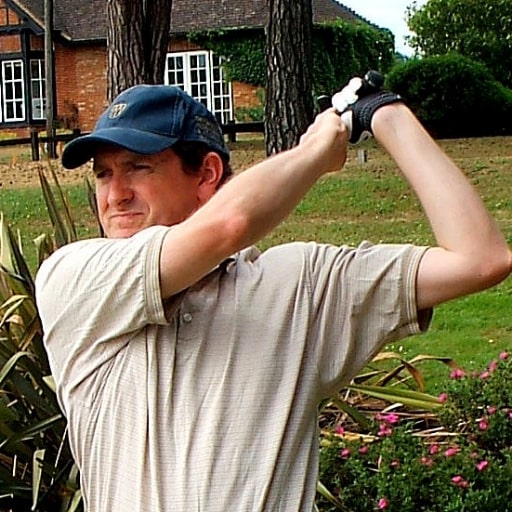The 1921 Open: The Quest For The USA’s First Claret Jug
The story of how the USA had their first Open Championship triumph
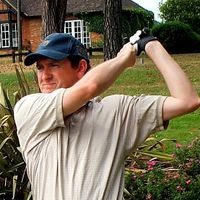
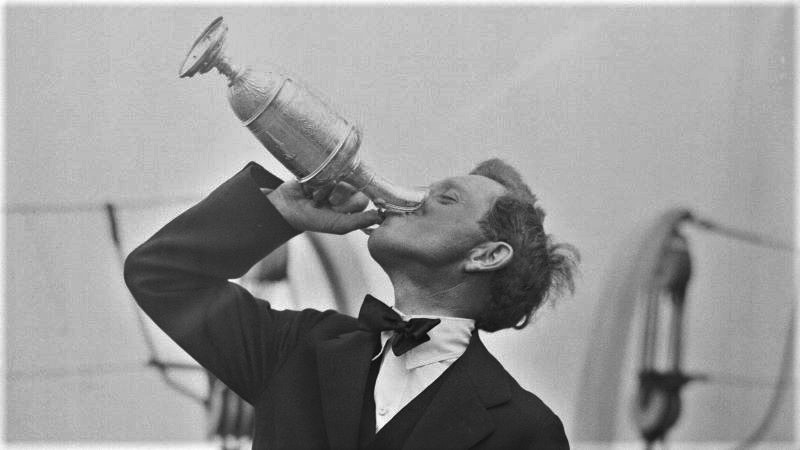
Subscribe to the Golf Monthly newsletter to stay up to date with all the latest tour news, equipment news, reviews, head-to-heads and buyer’s guides from our team of experienced experts.
You are now subscribed
Your newsletter sign-up was successful
Want to add more newsletters?

Delivered daily
Daily Newsletter
Sign up for all the latest tour news, gear reviews, head-to-heads and buyer’s guides plus features, tips from our top 50 coaches and rules advice from our expert team.

Once a week
Kick Point
Sign up to our free Kick Point newsletter, filled with the latest gear reviews and expert advice as well as the best deals we spot each week.

Once a week
Women's Golf Edit
Sign up to our free newsletter, filled with news, features, tips and best buys surrounding the world of women’s golf. If you’re a female golfer, you won’t want to miss out!
The 1921 Open Championship was looming up and James D. Harnett wanted an American to win The Open. None had ever done so. So he hatched a plan.
With the 1921 Open Championship approaching it rankled with James D. Harnett that, whereas many Brits had won the US Open, no American had yet won one of the 55 Open Championships thus far – or British Opens in American parlance.
But he knew you had to be in it to win it. Few leading American golfers played in The Open, due to practicality and expense.
There wasn’t much he could do about the distance between America and Britain. But he could do something about the financial obstacle.
In his capacity as circulation manager of Golf Illustrated, he wrote to the Professional Golfers' Association of America suggesting that a party of ‘12 to 20’ American professionals were sent over to play in the 1921 Open Championship. The venture would be financed by a popular subscription organised by the magazine.
The PGA of America liked the idea. So the British Open Championship Fund was launched in the November 1920 issue of Golf Illustrated.
Selection
Subscribe to the Golf Monthly newsletter to stay up to date with all the latest tour news, equipment news, reviews, head-to-heads and buyer’s guides from our team of experienced experts.
In the end, resources ran to sending a party of 12 to the 1921 Open. This dozen was selected by PGA President George Sargent and PGA Secretary Alec Pirie, aided by USGA Vice-President Robert Gardner.
The selections included British ex pats. One of them was Scottish-born American citizen Fred McLeod, who had won the 1908 US Open. He later said his main motivation was not so much playing in The Open, but the chance to go home to see his mother.
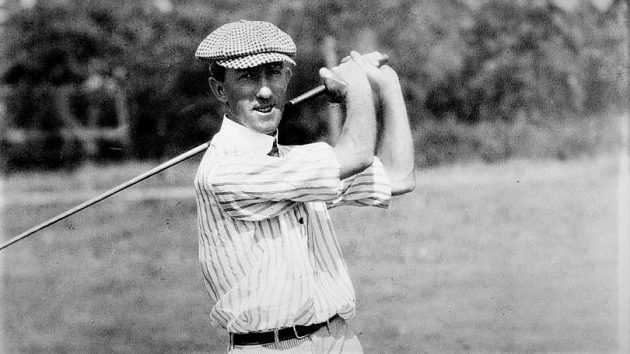
Only 11 players boarded the RMS Aquitania at New York on 23 May for the ten-day voyage to Southampton, as Harry Hampton had withdrawn from the trip.
The American party were also to play in the Glasgow Herald Tournament which started on June 7. This offered the richest prize in British golf.
The 1920 tournament had had total prize money of £650, itself a record. But this was increased even further for 1921. The event was also rechristened the Glasgow Herald 1000 Guineas Tournament, to reflect that the prize money was now £1,050. The winner would receive £200 of this. (In comparison, the winner of the 1921 Open Championship would receive £75).
Match at Gleneagles
The host venue, Gleneagles, learning that a group of Americans would be playing in the event, organised a golf match on the eve of the tournament between the US and Britain.
Ten players lined up on either side, with five foursomes in the morning and 10 singles in the afternoon. The hosts won nine to to the American three, with three ties.
The 1000 Guineas attracted a huge field, and three of the American party – Jock Hutchison, Walter Hagen and Emmet French – won prize money for getting through to the final 16 of the matchplay section.
The American party then went on to St Andrews, with the exception of Hutchison and Hagen who played in a tournament at Kinghorn on 14 and 15 June. Hagen had a poor first round and scratched from the event. Hutchison shot 74 and 64 and took the £50 first prize.
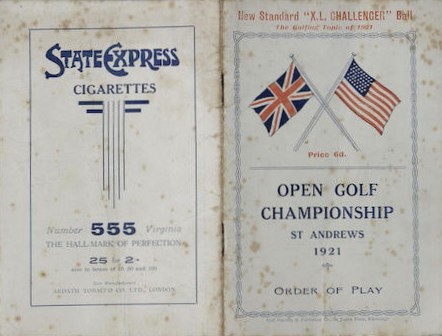
The presence of so many American golfers in the 1921 Open was reflected in the design of the order of play booklet, in effect the programme. A crossed Union Jack and Stars and Stripes flag was on its cover.
Open Qualification
Qualification for the 1921 Open took place on June 20 and 21 with 18 holes over the Eden course and 18 on the Old Course. The top 80 and ties from the field of 146 were to qualify.
In the end 85 golfers did so, with all but one of the American party qualifying. Qualifying was headed by Jock Hutchison, with 146. Those in 80th spot has shot 161.
The 1921 Open Championship was played over two 36-hole days. Hutchison continued his fine form and lead after the first morning by two shots. After a hole-in-one on the 8th, his drive on the par-4 9th ended “inches” from the hole.
He maintained his lead at the close of the first day, but only by a shot from Ted Ray and Jim Barnes.
But a poor third round of 79 saw Hutchison trail leaders Sandy Herd and Jim Barnes by four. He was now tied in 8th place.
But Herd and Barnes shot 80 in the final round and ended in a seven-way tie for 6th.
Hutchison reclaimed the top of the leaderboard at the end of the fourth round, having made 70. He was joined there by English amateur Roger Wethered. Tom Kerrigan, another of the American party, had come third, two shots behind.
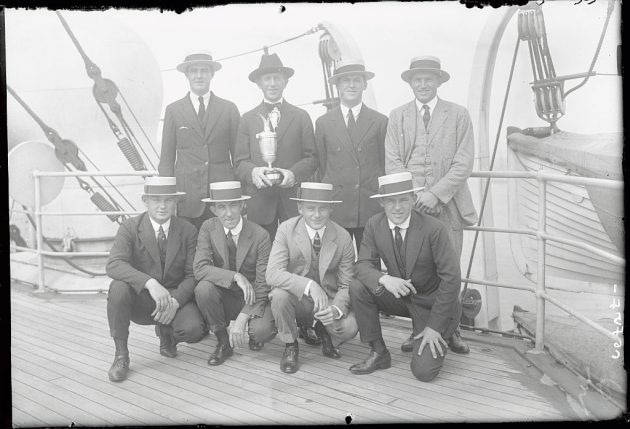
Playoff
A 36-hole playoff would be held the following day. Or it would so long as both competitors turned up. Wethered was originally not minded to play in it, as he was due to play in a cricket match. However he was persuaded to stay in St Andrews.
Weathered could have played in his cricket match, taking the claret jug with him, had he not stood on his ball in the third round, incurring a one-shot penalty. Even then, had he made par on his 72nd hole he would have won.
The first round of the play off was tight, but Hutchison was never behind in it. Level after six holes, he was ahead by four shots after 10. Wethered then cut that lead to one shots after 16, before Hutchison finished the round three shots ahead.
The second round comfortably went Hutchison’s way, shooting 76 to the Englishman’s 82, to win the playoff 150 to 159.
The 1921 Open Championship at St Andrews had been won by someone born and raised in the town, and who used to caddie there. But he was hailed as America’s first Open champion.
Pathe News captioned it thus: ‘Jock Hutchinson, St Andrews born but playing for America, defeats Mr Roger Wethered in a play off after thrilling tie.’
The Times reported that “our Open Championship goes for the first time in its history to America."
James D. Harnett’s plan had worked to a tee.
Contributing Writer Roderick is the author of the critically acclaimed comic golf novel, Summer At Tangents. Golf courses and travel are Roderick’s particular interests. He writes travel articles and general features for the magazine, travel supplement and website. He also compiles the magazine's crossword. He is a member of Trevose Golf & Country Club and has played golf in around two dozen countries. Cricket is his other main sporting love. He is also the author of five non-fiction books, four of which are still in print: The Novel Life of PG Wodehouse; The Don: Beyond Boundaries; Wally Hammond: Gentleman & Player and England’s Greatest Post-War All Rounder.
